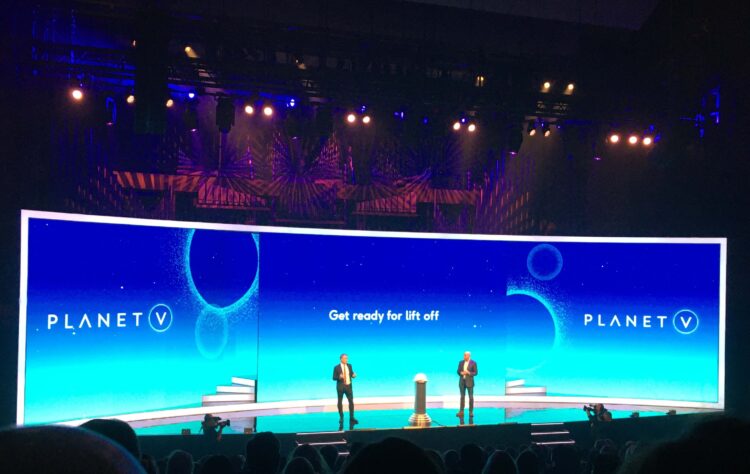Sky Media agrees to trial ITV’s Planet V

Sky Media, the ad sales arm for Sky, has agreed to join ITV’s Planet V video-on-demand ad platform for a trial period.
The UK’s second largest TV sales house will use Planet V for its on-demand content, with agencies and advertisers expected to be able to plan and buy campaigns on Sky’s portfolio of channels using the self-serve platform later this year.
Sky Media follows STV, which joined Planet V in January.
“Through Planet V, clients and agencies will now have the opportunity of a single point of entry to plan and buy campaigns across ITV, Sky and STV,” an ITV spokesperson said.
Sky will have a bespoke merchandising area for their own inventory, ensuring the pay-TV broadcaster will continue to maintain control over all aspects of their sales on Planet V, while enabling buyers to use a single platform for planning and buying on-demand content.
Kelly Williams, managing director of ITV Commercial, said: “I’m delighted to be welcoming Sky onto Planet V — an addressable platform designed and built for TV. We’re bringing efficiencies and targeting benefits to our buyers and advertisers, as well as ensuring our own businesses are at the forefront of the rapidly developing programmatic advertising sector.
“As the media landscape becomes increasingly fragmented and complicated, working together will become more and more important, and this new collaboration is the next step in deepening our partnership as we build on C-Flight’s success.”
Planet V is the UK’s second largest video advertising buying platform after Google, giving advertising agencies access to data-enabled, fully addressable audiences at scale. ITV launched the platform in 2020 and the broadcaster said it now has over 1,800 users.
Brett Aumuller, managing director of Sky Media, added: “Alongside the rest of the TV industry, we have a strong heritage of collaboration, promoting and protecting our brand safe and trusted credentials. Sky and our partner channels have an amazing selection of on-demand programming for brands to tap into, using Planet V we hope it makes it easier for brands to add this great content to their campaigns.”
Analysis: an important chapter in UK TV’s collaboration story
Nearly three years after launching Planet V, ITV’s commercial chief Kelly Williams has finally done it: snaring one of its other Big Three rivals to join Planet V.
Yes this is a trial and is not guaranteed to become a permanent relationship. But Sky’s membership of Planet V is the latest chapter in a developing story about UK TV’s biggest players becoming more collaborative. Frankly, this is through necessity as more TV audiences migrate to streaming services, free ad-funded services, and user-generated videos on YouTube and TikTok.
The strand that runs through all of this collaboration? These media owners are keen to stress to advertisers (and perhaps regulators, too) that TV broadcasters are guardians of high-quality, or “premium” content. And premium broadcasting needs premium advertising rates.
In an interview ahead of Planet V’s launch in 2020, Williams was clear about why he wanted Sky and Channel 4 to join: “We think premium broadcast content shouldn’t be bought and sold mixed together with non-premium online inventory. Success for us is that in a few years time, some other broadcasters come onto the platform.
“We built it for us, we built it for a TV market, but it’s a platform that every agency is going to have sat on their desktop… If you can buy Channel 4 and ITV and Sky and other broadcasters, that’s got to be a positive for buyers.”
Since then, the Big Three have been busily testing a new joint audience measurement service, C-Flight, to give advertisers better data and insights about online and offline audiences. They have also been occasional partners on joint ‘marketing for good’ initiatives, such as promoting healthy eating in 2019 and taking part in the UK Census in 2021.
Sky’s decision to take part in Planet V shows that the argument has taken hold, that while ITV and Channel 4 are still the competition, they are not the enemy. The enemy is whatever “non-premium” content is as linear TV continues to be replaced by internet TV.




